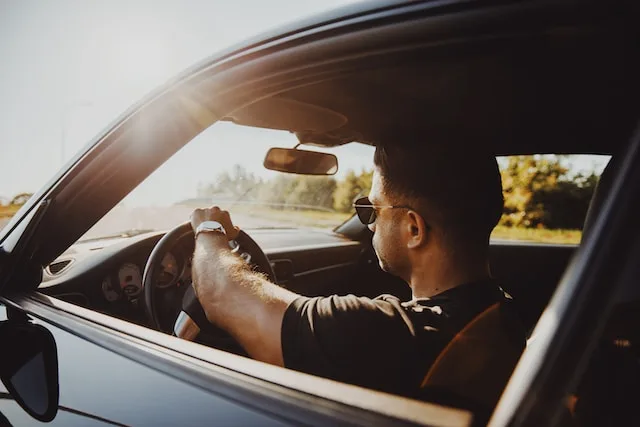Top 7 Things Every Driver Should Know
Learning to drive is an exciting experience, but it’s important to stay safe and informed on the rules of the road. Whether you’ve just gotten your license or have been driving for years, brushing up on key regulations can help ensure that you stay informed as both a passenger and a driver. To get you started, here’s our list of the top 7 things every driver should know! From proper paperwork to defensive etiquette behind the wheel – there are plenty of ways to keep yourself safe while out on the open roads. Keep reading to learn some invaluable tips that will help make your time in the car smoother than ever!
Know and Obey Traffic Laws
Getting behind the wheel can be an exhilarating experience, especially if you’ve just gotten your license. However, it’s crucial to remember that driving is a privilege, not a right. Part of being a responsible driver means knowing and obeying traffic laws, no matter how insignificant they may seem. Whether it’s stopping at a red light, using your turn signal, or keeping within speed limits, these rules are in place to keep everyone on the road safe. It can be tempting to bend or break the rules, but doing so puts yourself and others in danger. So the next time you take to the road, remember to be mindful of traffic laws – it could make all the difference.
Maintain your Vehicle Regularly
Regular vehicle maintenance is essential for keeping your car running smoothly. One of the most important aspects is getting regular oil changes. This helps to keep your engine clean and lubricated, preventing wear and tear that can lead to costly repairs down the road. In addition to oil changes, it’s also important to regularly check your fluid levels and tire pressure. Low fluid levels can cause damage to your engine, while improperly inflated tires can affect your vehicle’s handling and fuel efficiency. Knowing everything is ok with your tires will help you drive with confidence and peace of mind. By taking the time to perform these simple maintenance tasks, you can help ensure the longevity and reliability of your vehicle for years to come.
Keep an Emergency Kit Inside your Car
It’s never fun to think about getting stranded on the side of the road, but it’s a reality many of us face at least once in our lives. That’s why it’s important to be prepared and have an emergency kit inside your car. A simple kit can include items like a spare tire, a first aid kit, jumper cables, a flashlight, and a blanket. These items can be the difference between a quick fix and being stuck on the side of the road for hours. Not only does having a kit in your car provide you with peace of mind, but it can also be helpful for others in need.
Get to Know the Features of Your Vehicle
When it comes to driving your vehicle, it’s important to get to know all the features to ensure a safe and enjoyable ride. Take headlights, for example – knowing how to operate them can mean the difference between seeing clearly on a dark and stormy night or getting into an accident. Likewise, understanding how your windshield wipers function can make a huge difference in visibility during inclement weather. And let’s not forget the essential turn signals – mastering these can make you a more confident driver and help you avoid collisions.
Learn Defensive Driving Skills
Driving can be a thrilling experience, but it also requires important skills to ensure safety on the road. Defensive driving is one such skill that every driver should master. It involves a range of techniques, from anticipating potential risks to knowing how to avoid them. One of the key aspects of defensive driving is always looking two cars ahead in traffic. By staying aware of what’s happening further up the road, you can prepare to react in time. Additionally, knowing when to yield or move over in a lane can help to prevent accidents and keep everyone on the road safer.
Understand the Different Types of Insurance Coverage
When it comes to auto insurance, it’s important to understand the different types of coverage available to ensure that you have the protection you need in case of an accident or other unexpected event. Liability insurance covers damage to other people’s cars or property if you cause an accident, while collision insurance covers damage to your vehicle caused by a collision with another vehicle or object. Comprehensive insurance, on the other hand, covers damage to your car that is not the result of a collision, such as theft, fire, or weather-related damage.
Be Aware of your Surroundings
Finally, being aware of your surroundings is a key part of being a safe and responsible driver. Pay attention to cyclists and pedestrians on the road, keep an eye out for wildlife crossing signs, and be prepared to adjust your speed accordingly. Additionally, never use your cell phone while behind the wheel – this can divert your attention from the road and lead to dangerous situations.
Being a responsible driver starts with knowledge of the rules of the road. Beyond that, regular vehicle maintenance and taking simple safety precautions can go a long way toward making your drives smoother and safer. Whether you’re a seasoned veteran or just getting started, it’s important to keep the basics of auto safety in mind—like understanding the different types of coverage options available for drivers. So make sure you check out our top 7 things every driver should know and stay safe out there on the roads!



